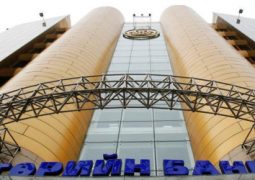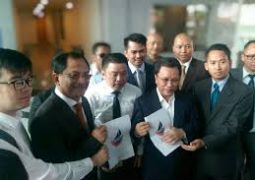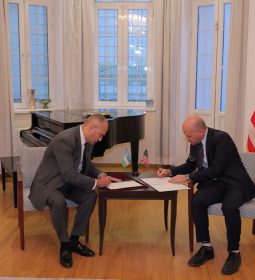Revenue Department told to grab Thaksin tax

- 15 Mar 2017 at 02:49 10,408 viewed47 comments
- WRITER: WICHIT CHANTANUSORNSIRI
The government has ordered the Revenue Department to expedite efforts to collect 12 billion baht in tax from former prime minister Thaksin Shinawatra over the Shin Corp share sale by the March 31 deadline.
Prime Minister Prayut Chan-o-cha said Tuesday the department must collect the tax, but if it fails to do so, an appeal will be lodged according to legal procedures, and this must be carried out before the deadline.
“The issue involves a complicated set of secret plans and I spent more than a week trying to make sense of it,” Gen Prayut said, adding he will not use Section 44 of the interim charter to deal with the matter.
The prime minister stressed the government will not act in a way that runs counter to the rule of law.
He said the decision is the outcome of a meeting on Monday of all concerned agencies including the Anti-Money Laundering Office (Amlo) and the Office of the Auditor-General (OAG), which agreed the normal legal process would be used to handle the case.
Finance Minister Apisak Tantivorawong said Tuesday that he has instructed the Revenue Department to look at ways to assess and charge Thaksin with the tax amount, and this must be completed before the March 31 deadline.
Mr Apisak said the Finance Ministry has also set up a committee to investigate tax assessment officials who previously failed to collect the tax from Thaksin.
Also Tuesday, Deputy Prime Minister Wissanu Krea-ngam said the Revenue Department and the OAG still differ as to whether the tax can be collected from Thaksin.
Mr Wissanu stressed the matter must be made clear by assessing the tax amount, and ensuring fairness and the right to appeal.
If the taxpayer, or Thaksin in this case, refuses to pay, the government must then take the case to the Central Tax Court, Mr Wissanu said.
The government can still appeal at the Supreme Court’s Tax Cases Division, if the Central Tax Court does not rule in its favour, Mr Wissanu said, adding that a ruling by the Supreme Court’s Tax Cases Division will serve as a precedent.
Mr Wissanu said the process is in compliance with the Revenue Code and Section 44 will not be used to extend the 10-year statute of limitations.
He added that when a request for tax assessment is issued to Thaksin, the statute of limitations in the case will effectively be halted.
Government spokesman Sansern Kaewkamnerd said the next step will be for the government to assess and charge Thaksin with the tax amount, though it is likely that Thaksin will not pay the tax.
However, when a request for tax assessment is issued to Thaksin, the statute of limitations in the case, which expires on March 31, will be halted, and if Thaksin fails to pay the tax, the government will then take the case to court, Lt Gen Sansern said.
Previously, the Finance Ministry’s tax committee, chaired by deputy permanent secretary for finance Prapas Kong-ied, indicated people who have incorrectly submitted their annual earnings for tax evaluation will not be required to resubmit them after a five-year time frame passes, and the time frame will not be extended.
The decision concerns the case where Thaksin’s children, Mr Panthongtae and Ms Pinthongta, purchased 329 million Shin Corp shares at a price of one baht each from Ample Rich, an offshore holding company controlled by the Shinawatra family.
The pair later sold the Shin shares in their name to Temasek through the Stock Exchange of Thailand for 49.25 baht each, reaping a capital gain of 48.25 baht per share or nearly 16 billion baht. They were not taxed on the capital gains at that time.
However, their tax liability dispute emerged after tax authorities backtracked on their position and said the siblings had to pay taxes of 12 billion baht including interest and penalties.
The case went to the Central Tax Court which ruled in the siblings’ favour and the Revenue Department did not appeal against the ruling.
According to the court, Thaksin was the real owner of the shares, not his children, referring to the ruling of the Supreme Court’s Criminal Division for Holders of Political Positions in 2010 on Thaksin’s asset concealment case concerning the sale of 1.4 billion shares in Shin Corp, including those held by the siblings.
As a result, the siblings were not subject to the tax, the tax court said.
Based on the ruling, the OAG asked the Revenue Department to collect the 12 billion baht from Thaksin instead, saying the revenue law has room for the department to extend the five-year time frame.
- Previous KLIA immigration service best in the world: Skytrax
- Next Mongolian Ice festival attracts tourists from 70 countries
















